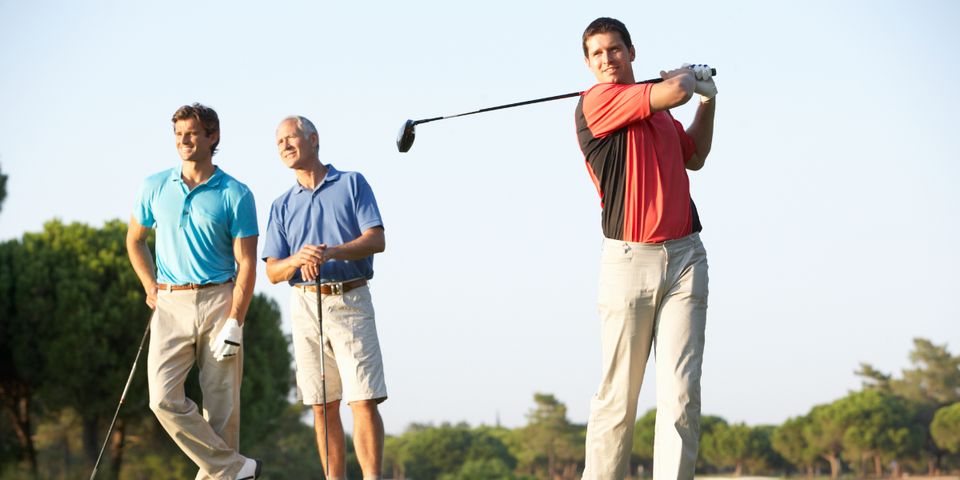4 Common Hip Injuries for Golfers

Compared to other sports, golf may appear to carry a lower risk of injury. However, due to the repetitive motions and rotational force required to swing, overuse injuries in the hips are fairly common. Seeing a sports medicine specialist when you’re dealing with hip pain is critical to ensuring you can continue golfing. To recognize the signs of injury and prevent them in the future, learn more about common hip injuries below.
A Golfer’s Guide to Preventing Hip Injuries
1. Hip Flexor Strain
The hip flexors are a group of muscles toward the front of your hip that play a key role in moving your lower body. Hip flexor strains happen when these muscles are stretched or torn, which can result in pain, swelling, tenderness, and limping. Continued overuse and improper form are the main causes of injury. To avoid straining your hip flexors, stretch before and after golfing and frequently evaluate your swing mechanics. Building abdominal and lower back strength can also help prevent injury.
2. Hip Tendonitis

Tendonitis of the hips refers to the inflammation and irritation of hip tendons. The tendons that connect your inner hip muscles to your thighbone can become fatigued or tight due to the same problems that cause strains. Symptoms include a dull aching pain, swelling, and stiffness. Hip tendonitis from golf can make normal daily activities such as putting on shoes and climbing stairs uncomfortable.
3. Hip Bursitis
Golfers may develop bursitis in one or both hips. Hip bursitis, also known as trochanteric bursitis, is a common form of chronic hip pain that typically affects the outside part of the upper leg. Small, fluid-filled sacs called bursae act as cushions between tendons, bones, and muscle. Irritation and inflammation of bursae, prompted by tight or tense hip flexors combined with repetitive hip rotation, can cause pain, redness, swelling, and stiffness. Symptoms may worsen when you move or press on the affected joint.
4. Hip Arthritis
A more slow-acting issue golfers may face is hip arthritis. This happens when the cartilage in the hip joint, which normally acts as a cushion between bones, is damaged or worn down. This causes the bones to sit unnaturally in the joint socket and grind together. Hip arthritis should be addressed by a sports medicine specialist as soon as possible. Severe cases may require hip reconstruction or total hip replacement surgery. To prevent hip arthritis, limit golfing sessions to one to two hours a day and take a break when your joints start to hurt. Increasing your omega-3 fatty acid and vitamin D intake can promote healthier joints.
If discomfort in your hip joints persists, turn to the experts at Tri Rivers Musculoskeletal Centers. Based in Wexford, PA, this team of medical professionals specializes in orthopedics, sports medicine, rheumatology, and rehabilitation. They are dedicated to finding the source of your joint pain and creating an effective, personalized plan that will put you on the path to recovery. Learn more about their services online and call (866) 874-7483 to schedule an appointment.
About the Business
(37 reviews)


